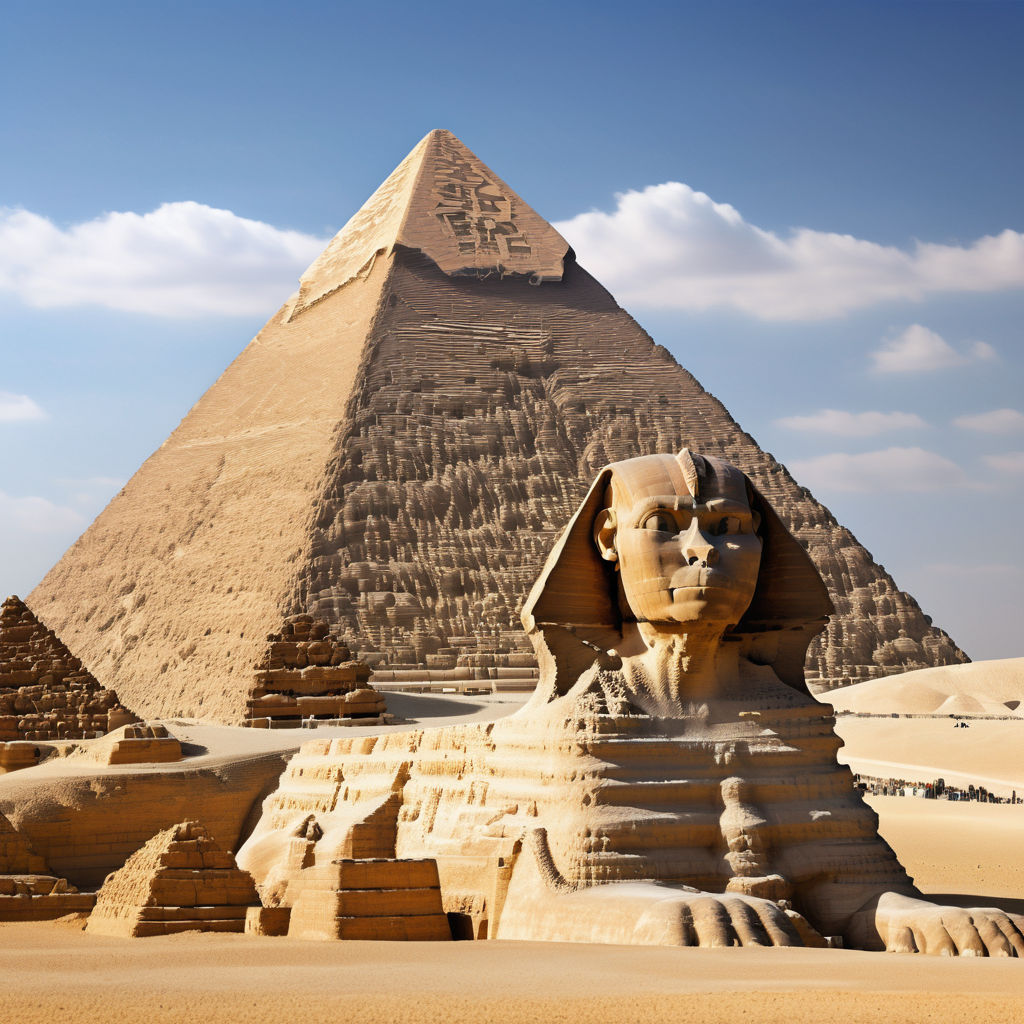Discover Egypt: Rich Heritage, Cultural Diversity, and Social Dynamics
Exploring Egypt's Cultural Tapestry, International Engagement, and Social Interactions

Introduction to Egypt
Egypt, officially known as the Arab Republic of Egypt, is a transcontinental country spanning the northeast corner of Africa and the southwest corner of Asia via the Sinai Peninsula. It is bordered by the Mediterranean Sea to the north, the Gaza Strip and Israel to the northeast, the Red Sea to the east, Sudan to the south, and Libya to the west. Major cities include Cairo (the capital), Alexandria, Giza, Sharm El Sheikh, and Luxor. Egypt's rich cultural heritage is deeply rooted in its ancient civilization, known for monumental achievements such as the Pyramids of Giza, the Sphinx, and the temples of Luxor and Karnak. The country's history is a tapestry of ancient Egyptian, Greco-Roman, Christian, and Islamic influences, which is reflected in its architecture, art, literature, and traditions.
Cross-national and Cross-cultural Understanding
Egyptians generally perceive and engage with other cultures with a mix of curiosity, hospitality, and pride in their own heritage. The country’s strategic location as a crossroads between Africa, Asia, and Europe has historically made it a melting pot of cultures, fostering an appreciation for diversity. Egypt actively promotes cross-cultural understanding through various initiatives and programs. Significant cultural exchanges and educational programs highlight Egypt’s commitment to global engagement. The Supreme Council of Culture and the Ministry of Culture play crucial roles in promoting Egyptian culture abroad through festivals, exhibitions, and language courses. Additionally, scholarships and exchange programs, such as the Egyptian Government Scholarships and the Fulbright Program, facilitate academic and cultural exchanges, fostering mutual understanding. International partnerships also enhance cross-cultural understanding. Egypt is a member of various international organizations, including the United Nations, the African Union, and the Arab League, promoting cooperation and cultural exchange. The country’s participation in UNESCO and other cultural initiatives further underscores its dedication to fostering global cultural ties.
Interactions and Social Dynamics
Interactions between Egyptians and foreigners are generally characterized by warmth and hospitality. Egyptian social behaviors are influenced by cultural values such as "karam" (generosity), respect for elders, and a strong sense of community. These values are often reflected in the way Egyptians engage with outsiders. Social behaviors in Egypt emphasize respect and politeness, especially in initial interactions. Greetings typically involve a handshake, and in some cases, a kiss on both cheeks, depending on the context and level of familiarity. Hospitality is a significant aspect of Egyptian culture, and guests are often treated with great care and generosity, frequently invited to share meals and participate in family gatherings. Communication styles in Egypt are generally expressive and indirect. Egyptians tend to use elaborate language and gestures to convey their messages, often prioritizing harmony and avoiding confrontation. Understanding these subtleties can be challenging for foreigners, but learning the language and cultural norms can help bridge this gap. Language plays a crucial role in facilitating interactions. Arabic is the official language, while English and French are widely taught in schools and spoken by many in urban areas. Multilingualism is an important aspect of Egyptian society, aiding in cross-cultural communication and interactions.
Views on Dating and Relationships
Dating and relationships between Egyptians and foreigners are becoming more common, particularly among younger generations and in urban areas. Egyptian society tends to be conservative about relationships, heavily influenced by cultural and religious norms. However, there is a growing openness towards cross-cultural relationships as opportunities for international exposure increase. In Egyptian dating culture, there is often a strong emphasis on family approval and social harmony. Relationships are typically pursued with a long-term perspective, and traditional gender roles can play a significant role. Men are often expected to be providers and protectors, while women are expected to be nurturing and supportive. Cultural expectations and traditions, such as the importance of family approval and adherence to religious practices, can impact relationships. Understanding and respecting these cultural norms is essential for successful cross-cultural relationships in Egypt.
Marriage and Family
Marrying foreigners is accepted in Egypt, although it comes with certain social and familial considerations. Legal considerations for such marriages involve specific regulations governed by Egyptian civil law and religious practices. Foreign spouses are required to convert to Islam if they are not already Muslim, which can be a significant consideration for cross-cultural marriages. Socially, Egyptian families may initially have reservations about cross-cultural marriages due to concerns about cultural differences and social compatibility. However, acceptance typically increases as relationships develop and families get to know the foreign partner. Family plays a central role in Egyptian culture, and marrying into an Egyptian family often involves participating in family gatherings and traditions. Common practices in cross-cultural marriages include celebrating both Egyptian and foreign traditions, creating a blended cultural environment. For example, a couple might celebrate Egyptian holidays like Ramadan and Eid alongside holidays from the foreign partner’s culture.